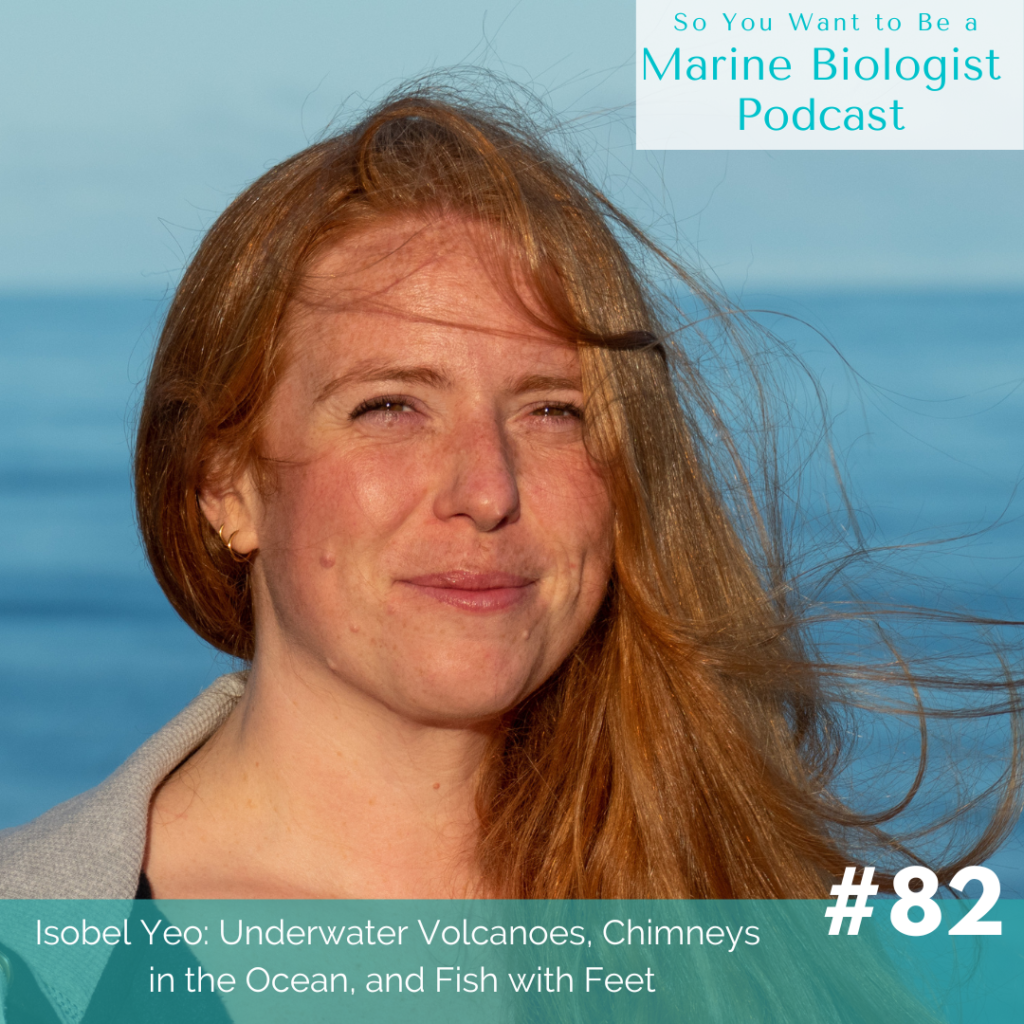Isobel Yeo is a marine volcanologist, which means she studies volcanoes underwater. Volcanoes are found everywhere, and we really don’t know that much about them. Today, Izzy and I chat about why it can actually be easier to study space than the ocean, and what field work really looks like including playing with ROVs and seeing fish with feet in thousands of feet of water. We chat about blue mining and what that means and how we, in our everyday lives, impact it. Izzy also explains the complexity of naming underwater seamounts, and I have a request for any listeners that like maps about halfway through, so stay tuned for that.
Connect with Isobel: twitter| website
Quicklinks
Volcanologist
National Oceanography Center
Mid-Ocean Ridges
Plate Tectonic Theory
Pillow Lavas
Geomorphology
Flat Topped Seamounts
Side Scan Sonar
Multi-Beam Sonar
Autonomous Underwater Vehicle
Remotely Operated Vehicle
Photogrammetry
Integrated Ocean Discovery Program
Pumice Raft
Global Multi-Resolution Topography of the Earth
Smithsonian Volcano Database
Frogfish (Fish with Feet)
Hydrothermal Vents
Ocean Mining
International Seabed Authority
Rattail Fish
Dumbo Octopus
Show Notes
0:19 Isobel begins by sharing how she first got intrigued by volcanos from a young age and how she started on her path towards becoming a marine volcanologist in the UK for the National Oceanography Centre.
2:47 Did you know that most of the oceanic crust is built by volcanos? Isobel explains how the movement of Earth’s tectonic plates creates ocean ridges and volcanos that erupt on the sea floor.
4:36 Isobel describes the different types of volcanos in the ocean, how they form, what they look like, and how their eruptions underwater compared to land volcanos as we know them.
11:29 Field work at the bottom of the ocean is not so easy; Isobel explains how the use of geophysical techniques, robots, ROVs, submarines, and other technology is especially useful in her work. She also shares how her research expeditions are typically run with large diverse groups of scientists working together.
18:03 Isobel explains how core samples for her work are collected from the bottom of the ocean and why these time capsules are so valuable to examine.
21:30 An interest in the interactions between volcanic systems and the ocean has taken Isobel from the Pacific to the Atlantic, and even the Arctic! She explains the effects and repercussions that these volcanos cause across the world.
32:29 “oceanic farts” also known as air bubble resulting from volcanic eruptions or gas release, cause changes in buoyancy which has been attributed to boat disappearances in the Bermuda triangle.
33:32 Isobel explains that it is currently logistically impossible to know how often volcanos are erupting in the ocean. However, it may be possible to roughly calculate this number in a small area by considering the rate at which tectonic plates are moving apart, the thickness of the crust, and the average volume of eruptions.
41:01 Hydrothermal vents, fish with legs, and lots of rubble. Isobel shares the mysterious geology and biodiversity she observes while watching the deep, dark live feeds of the sea floor during ROV deployment.
47:12 Isobel explains some of her research related to the potential impacts of blue mining, covers the basics, and discusses current regulations surrounding the controversial topic.
57:07 Isobel’s conservation ask: Be aware of the products you’re consuming in your daily life and where it all comes from.
59:52 Isobel’s favorite sea creature.
1:01:10 What does the ocean mean to Isobel.
1:03:19 Isobel talks about her blank-check-project dream of volcano monitoring across the ocean.
1:05:12 Isobel’s field story- Things going wrong and arctic seascapes!
1:08:02 Connect with Isobel!
